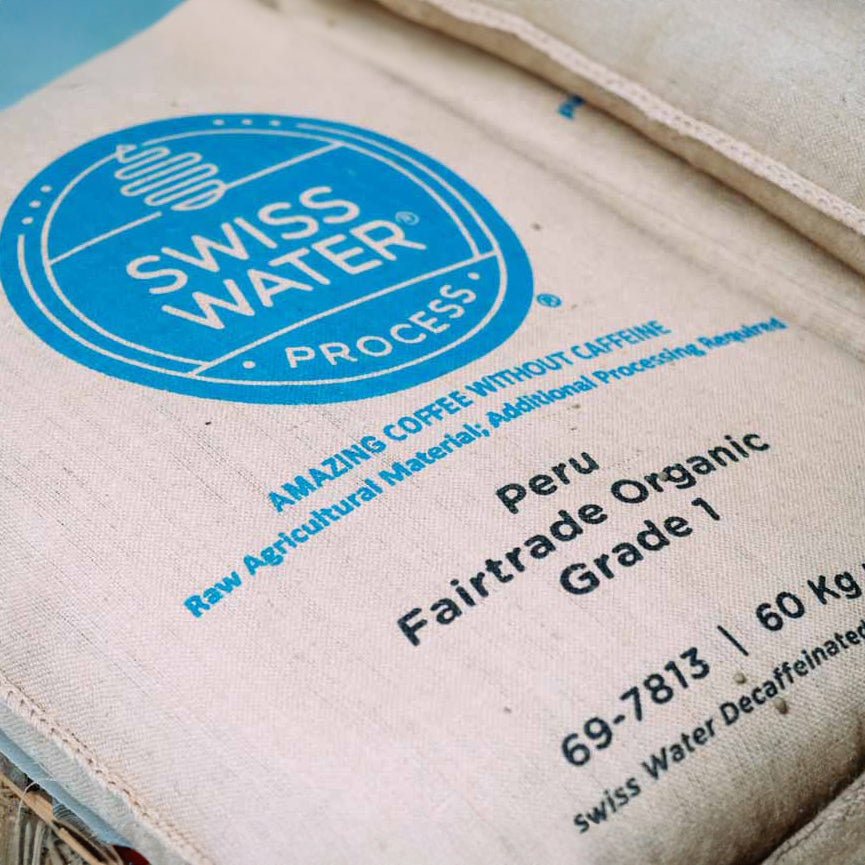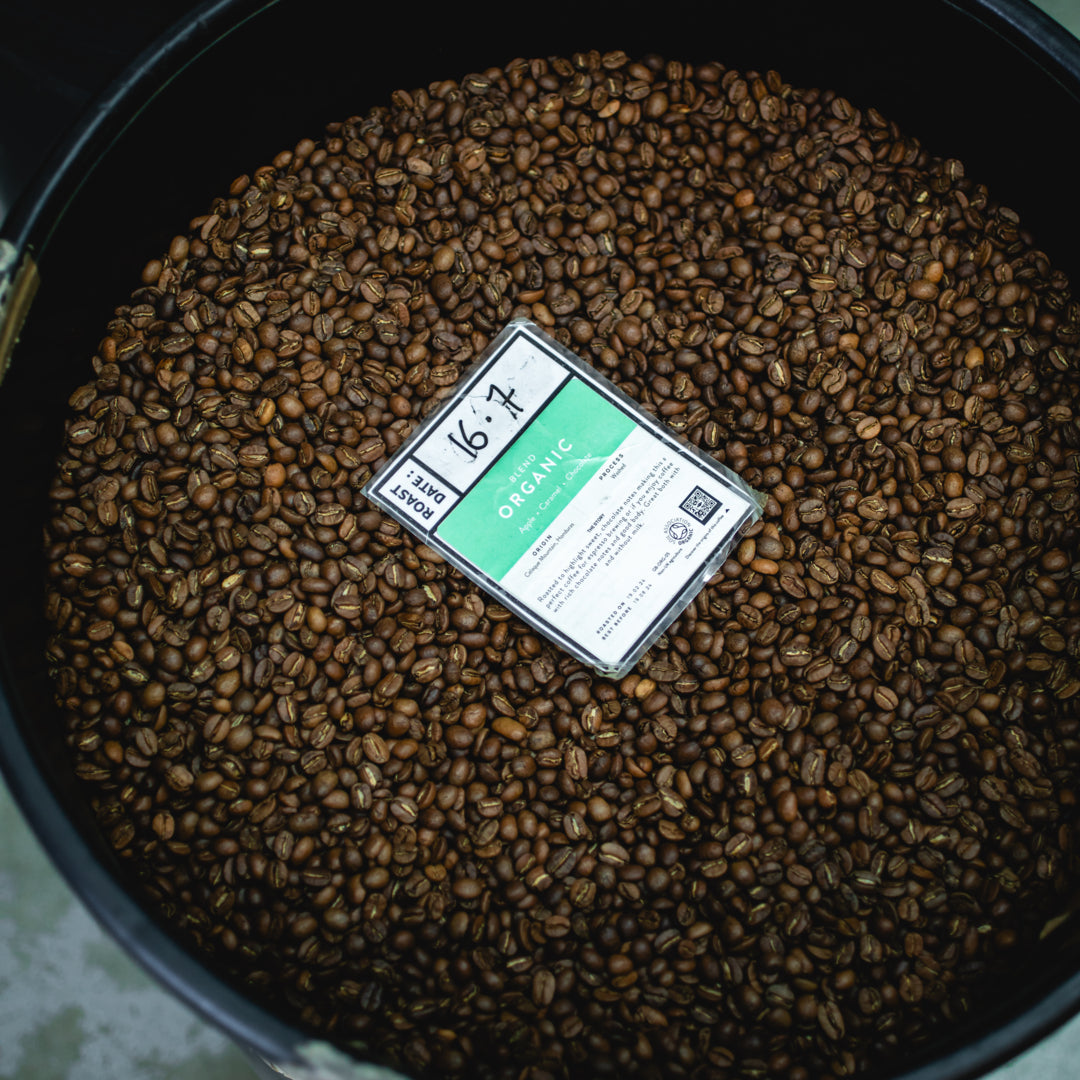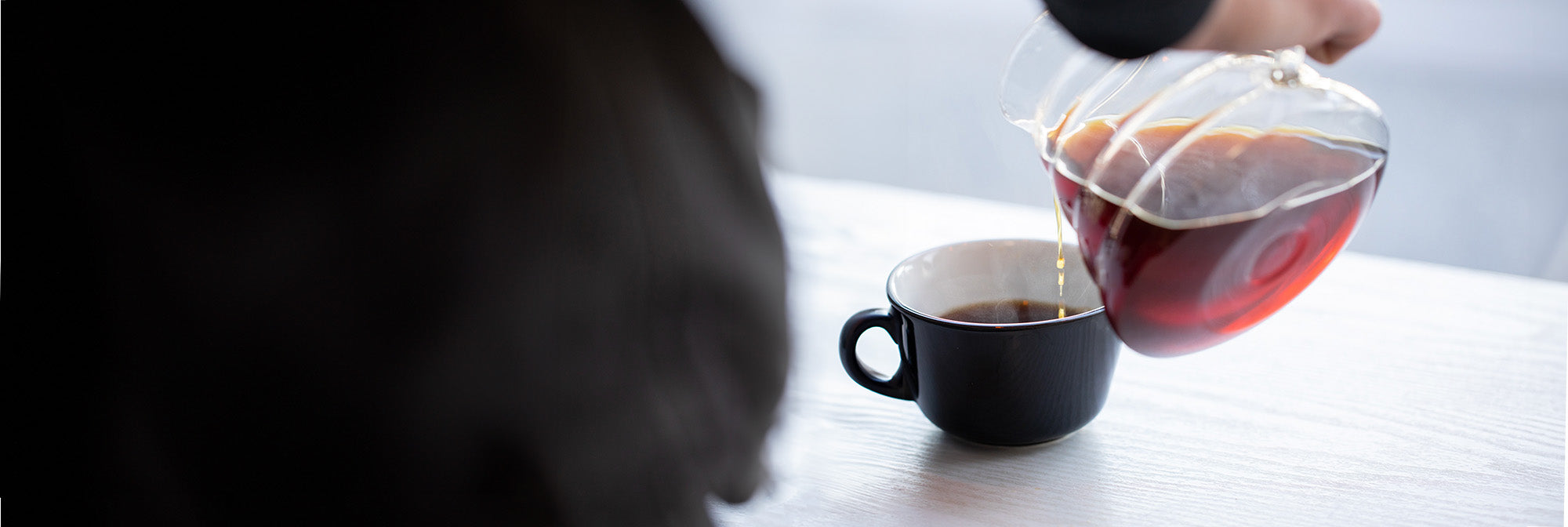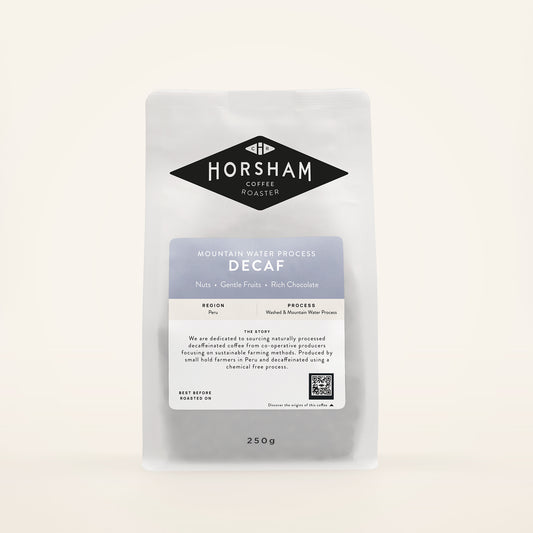For those who love the taste of coffee but want to cut-down on their caffeine, decaf coffee offers the perfect solution. But how "decaffeinated" is decaf coffee, really? While decaf is 97-99% lower in caffeine than regular coffee, it’s not completely caffeine-free. This means that on average, a standard cup of decaf coffee usually contains around 2-5mg of caffeine.
In this blog, we'll explore how the amount of caffeine varies in decaf coffee, the processes used to remove caffeine and look into the health benefits of decaf coffee. Let’s dive in!
How Much Caffeine is in Decaf Coffee?
Many people are surprised to learn that decaf coffee still contains some caffeine. The amount can vary depending on the type of coffee bean and the decaffeination process used. Here’s a typical breakdown:
Decaf Espresso (30 ml):
- Caffeine Content: 0.5-3 mg
- Notes: A single shot of decaf espresso has minimal caffeine, making it a great option for those who crave the rich taste of espresso without the buzz.
Decaf V60 Pour-Over / Drip Coffee (240 ml):
- Caffeine Content: 2-5 mg
- Notes: Drip decaf coffee is the most common, and while it contains only a small fraction of the caffeine found in regular coffee, it’s still not completely caffeine-free.
Decaf French Press (240 ml):
- Caffeine Content: 2-5 mg
- Notes: French Press is one of the most popular ways to brew decaf coffee - and often has slightly lower caffeine than pour-over / drip coffee.
Decaf Instant Coffee (240 ml):
- Caffeine Content: 1-5 mg
- Notes: Instant decaf coffee is convenient and typically has a very low caffeine content, suitable for those highly sensitive to caffeine.
Decaf Cold Brew (240 ml):
- Caffeine Content: 3-15 mg
- Notes: Decaf cold brew is less common but available in some specialty cafes. The extended brewing time can lead to slightly higher caffeine content compared to other decaf options.

Decaffeination Processes: How Is Caffeine Removed?
Decaffeination is a fascinating process that removes caffeine from the bean prior to roasting. Here are the most common methods:
Swiss Water Process:
- This method uses water to extract caffeine from coffee beans. It’s chemical-free and retains most of the beans' flavour. It’s popular among specialty coffee producers like ourselves for its natural approach.
Carbon Dioxide Process:
- In this method, carbon dioxide is used under high pressure to dissolve and remove caffeine. It’s highly efficient and retains the coffee's original flavours.
Solvent-Based Process:
- Here, solvents like methylene chloride or ethyl acetate are used to extract caffeine. While effective, this method can sometimes affect the flavor profile of the coffee, which is why it’s less preferred by specialty roasters.

Health Benefits of Decaf Coffee
Decaf coffee offers many of the same health benefits as regular coffee, with fewer side effects for those sensitive to caffeine:
Rich in Antioxidants: Decaf coffee retains most of the antioxidants found in regular coffee, which help combat oxidative stress and inflammation in the body.
Reduced Risk of Type 2 Diabetes: Studies suggest that both regular and decaf coffee are associated with a lower risk of developing Type 2 diabetes, likely due to their high content of polyphenols.
Heart Health: Decaf coffee has been shown to improve endothelial function, which can help lower the risk of heart disease.
Liver Protection: Coffee, including decaf, has been linked to a reduced risk of liver diseases, including cirrhosis and liver cancer.
Lower Anxiety and Better Sleep: For individuals sensitive to caffeine, decaf coffee offers the enjoyment of coffee without the anxiety, jitters, or sleep disruption that can come with caffeinated coffee.
Decaf coffee offers a way to enjoy the rich flavours and health benefits of coffee without the side effects of caffeine. While it does contain a small amount of caffeine, the levels are low enough to make it a suitable option for those sensitive to caffeine or looking to cut down. By understanding the decaffeination process and choosing high-quality decaf coffee, you can enjoy a delicious cup without sacrificing flavor or health benefits.
Whether you’re drinking decaf to avoid caffeine or just trying to cut back, you can now make more informed choices about what’s in your cup. So go ahead and savour that decaf brew—your coffee ritual doesn’t have to include caffeine to be satisfying!
Discover Delicious Decaf Specialty Coffee
-
Black Cherry | Prune | Molasses
Jairo Arcila natural Decaf Colombia | Natural - Sugarcane decaf
Regular price From £15.00Regular priceUnit price per£0.00Sale price From £15.00NEW


